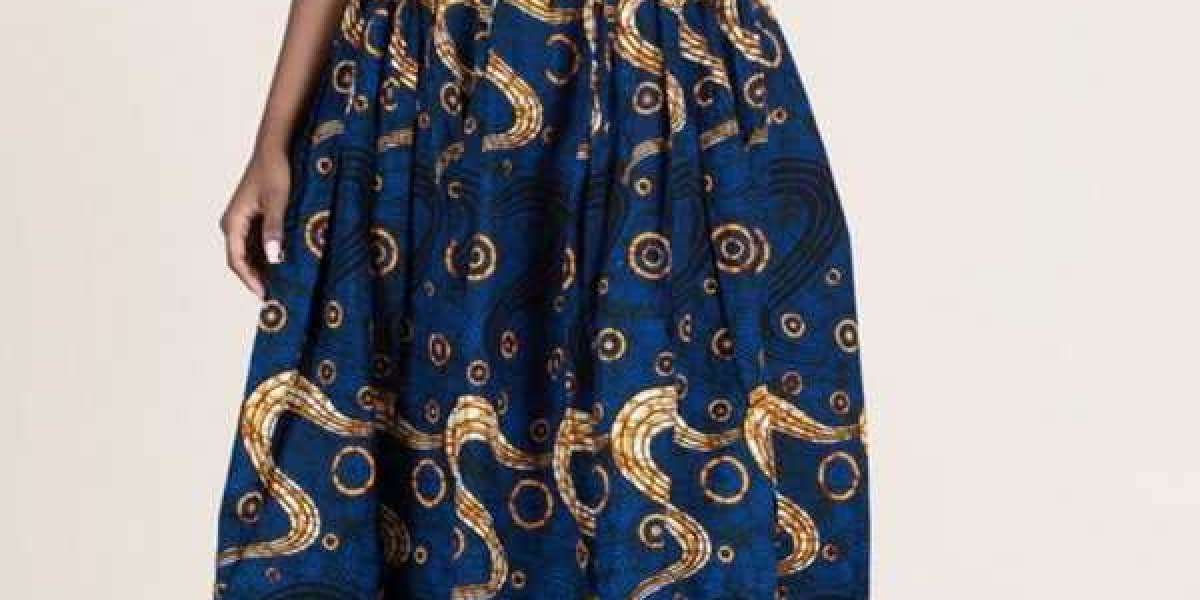African attire dresses are a vibrant and integral part of the rich cultural tapestry that spans the diverse continent of Africa. These dresses are a manifestation of the continent's deep-rooted traditions, artistic expressions, and unique heritage. Worn with pride and often adorned with intricate patterns and bold colors, African attire dresses serve as a symbol of identity, celebration, and cultural pride.
The diversity of African attire dresses is as vast as the continent itself, with each region and ethnic group contributing its unique styles and designs. From West Africa to East Africa, North Africa to Southern Africa, the dresses vary in aesthetics, fabrics, and cultural significance, reflecting the multifaceted nature of African societies.
In West Africa, countries like Nigeria and Ghana are renowned for their traditional dresses, with each ethnic group having distinct styles. The vibrant and visually striking Ankara fabric, characterized by bold patterns and bright colors, is commonly used to create dresses that showcase the cultural identity of the wearer. Dresses in West Africa often feature elaborate embroidery, beadwork, and other embellishments that convey specific meanings and cultural narratives.
Moving to East Africa, countries such as Ethiopia, Kenya, and Tanzania boast a rich diversity of attire. In Ethiopia, dresses are often made from traditional fabrics like the colorful Habesha Kemis for women and the Habesha Qemis for men. african clothes are adorned with intricate embroidery and are worn on various occasions, including religious ceremonies and cultural celebrations.
In Southern Africa, the influence of tribal heritage is evident in the dresses worn by different ethnic groups. The Ndebele people of South Africa, for example, are known for their vibrant beadwork and colorful attire. Dresses are adorned with geometric patterns and bright hues, reflecting the cultural identity and artistic traditions of the Ndebele.
North Africa, encompassing countries like Morocco, Egypt, and Tunisia, has its own distinct styles of attire. Traditional Moroccan dresses, such as the Kaftan, are often characterized by intricate embroidery and luxurious fabrics. These dresses are worn on special occasions and celebrations, embodying the elegance and grace of North African cultural aesthetics.
African attire dresses are not only a reflection of cultural identity but also serve as a form of artistic expression. The patterns, colors, and designs often convey symbolic meanings, telling stories of heritage, spirituality, and community. Many African designers draw inspiration from traditional dress styles, incorporating them into contemporary fashion to create a fusion of the old and the new.
The significance of African attire dresses extends beyond aesthetics; they are integral to various rites of passage and ceremonies. Weddings, coming-of-age celebrations, and religious ceremonies are often marked by the wearing of specific dresses that carry cultural and familial importance. These dresses become a tangible representation of the connections between generations and the continuity of cultural practices.
In recent years, African attire dresses have gained international acclaim, finding their place on global runways and red carpets. Designers around the world have embraced African prints, fabrics, and styles, incorporating them into their collections. This global recognition has not only elevated African fashion but has also contributed to a broader appreciation for the diversity and creativity embedded in African attire.
As a symbol of cultural pride, a vehicle for artistic expression, and a celebration of diversity, African attire dresses stand at the intersection of tradition and modernity. African dresses UK embody the spirit of a continent, telling stories of resilience, creativity, and the beauty found in the rich mosaic of African cultures. From the bustling markets to the global fashion scene, African attire dresses continue to weave a narrative of identity, heritage, and the enduring allure of African fashion.


